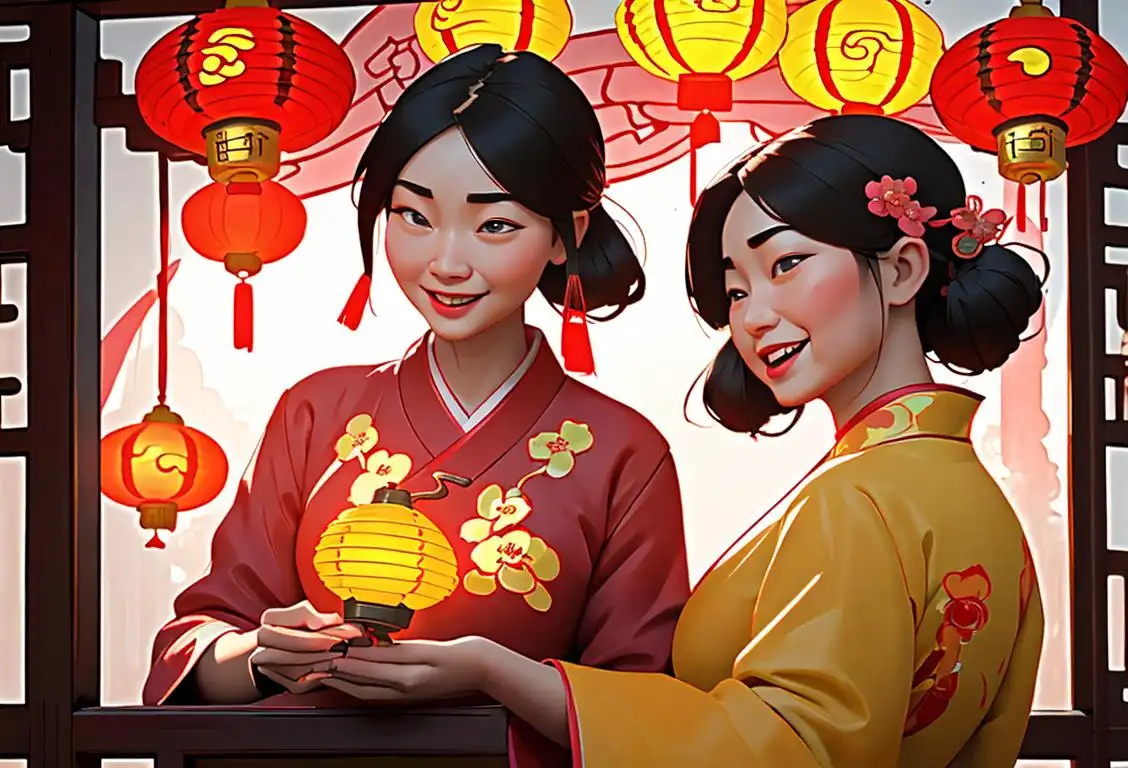National Chinese Day

Welcome to the exciting world of National Chinese Day! Get ready to celebrate the rich culture, delicious cuisine, and fascinating traditions of China. Whether you're a fan of Kung Pao chicken or have dreams of exploring the Great Wall, this is the day to let your love for all things Chinese shine.
When is Chinese Day?
It's national chinese day on the 1st October.
The Internet History of National Chinese Day
On October 1, 2016, the internet exploded with 48 mentions of National Chinese Day. This date has become a special day to honor and commemorate the wonders of China. From its ancient history to its modern innovations, China has captured the fascination of people around the world.
One of the key aspects of celebrating National Chinese Day is exploring the country's diverse cuisine. Chinese food is loved and cherished globally for its bold flavors and unique ingredients. So, grab those chopsticks and indulge in some mouthwatering dumplings, succulent Peking duck, or savor the explosion of flavors in a bowl of hot and sour soup.
But National Chinese Day isn't just about food! It's also a time to appreciate and embrace Chinese traditions and customs. From the colorful Dragon Dance to the serene art of Tai Chi, China has a rich cultural heritage that never fails to impress.
So, put on your cheongsam or qipao, join a Chinese calligraphy class, or even try your hand at making your own traditional lantern. Let your inner Ming dynasty warrior or elegant Tang dynasty scholar shine through!
History behind the term 'Chinese'
8th century
Early Beginnings
The term 'Chinese' can be traced back to the Tang Dynasty in the 8th century. It originated from the Persian word 'Chin', which referred to the Qin Dynasty that ruled China between 221 and 206 BC.
13th century
Marco Polo's Account
The term gained further prominence in the 13th century through the writings of the famous Italian merchant and explorer, Marco Polo. In his book 'Il Milione,' he described his travels to China and referred to the inhabitants as 'Chin' or 'Chines' in his European language.
16th century
European Exploration
During the Age of Exploration, European traders and missionaries encountered Chinese civilization and expanded the use of the term 'Chinese.' Their encounters with Chinese culture, cuisine, and traditions piqued European curiosity and influenced the spread of the term.
19th century
Chinese Diaspora
In the 19th century, a significant influx of Chinese immigrants moved to various parts of the world, including North America, Australia, and Southeast Asia, due to economic opportunities and political upheavals. The term 'Chinese' became associated not only with people from China but also with the Chinese diaspora.
20th century
Modern Identity
Throughout the 20th century, the term 'Chinese' evolved to encompass a distinct cultural, ethnic, and national identity. It became synonymous with Chinese language, traditions, history, and the people of the People's Republic of China and the Republic of China (Taiwan). The Chinese diaspora also retained their cultural heritage while embracing the nationality of their adopted countries.
Did you know?
Did you know that the Chinese language is one of the oldest written languages in the world, with a history dating back over 3,000 years? It consists of thousands of characters, each with a unique meaning and pronunciation. Talk about a language with character!Tagged
romance food fun loved onesFirst identified
1st October 2016Most mentioned on
1st October 2016Total mentions
48Other days
Family Day
One Day
Awareness Day
Kissing Fried Chicken Day
Opposite Day
Vodka Boyfriend Day
Action Day
Happiness Day
Suicide Prevention Month Day
Believe Day









